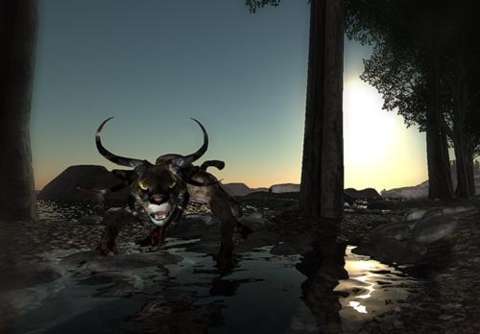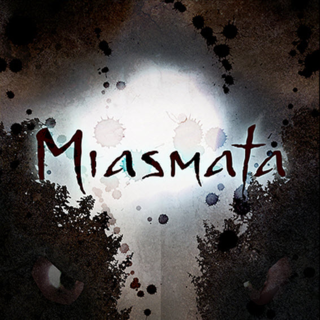London. Dawn of the 20th century. The plague is unleashing its vengeance. Plague gets you. It's rumoured that on the faraway, fictional archipelago named Eden lies a cure concealed within its flora. Luckily for you, you're pretty handy at botany. Fate lands you on the island, you go look for a cure.
Ludonarrative is a concept exclusive to interactive media referring to story created by the player. It's a relative concept; meta-game story aside, video game story always happen within the context defined by the developer, it is more a question of how easily this is perceived. Ludonarrative is a word I don't use very often mostly because I'd be called a pretentious twat, but also because most single player story-driven games unfold predictably thanks to their heavily defined structure. With a minimalist chronological structure, and a handful of dynamic elements the player needs to be relentlessly weary of, Miasmata nails a true (as it gets) ludonarrative story of survival.
Weather, thirst, terrain, location and landmarks (the game uses a crude sight/compass/map based triangulation orienteering - a core aspect of gameplay), time of day, nearest refuge. These are things that are on your mind as you battle with your health, try to keep your footing, avoid Eden's lurking beasts, looking for colourful plants and most importantly, realising that if you **** up or rush into the wilderness wantonly, you will die and revert significantly far back. The movement system is clunky, as it should be for one who got dat black death and it is frustrating and meaningful to die. (Ok sometimes the movement system just fucking sucks.)

At one point in the game, late afternoon, I found myself being stalked by Eden's resident beasts as I was innocently looking for flowers to pick. I started moving through the jungle quickly, using a negative incline and heavy foliage to my advantage, quickly hiding myself from the beast. I find myself in an area I haven't yet charted. I climb a hill and examine my map but I don't see any landmarks to cross-reference. I'm spluttering and coughing, my vision is fading. I take several precarious steps too many and tumble down the hill. Am I fucked? Where the **** am I? It's raining. I hold out my trusty lighter. I can see a metre in all directions. I follow the ground using what look like the easiest paths to take. I can't walk up hills because I barely have the energy. Everything is telling me I'm about to die and I'm so closing the game out of frustration. That's when the soothing music comes on and I look up to find the wooden walls of a hut with medicine, a place to save and a bed. That moment made the game for me.
Graphically and artistically the game might leave a little to be desired for, with some ugly textures, jarring combinations of cartoonish and naturalistic elements, foliage popping in and out, general graphical glitches. However, it hardly detracts from its ability to immerse. I took a break midgame, walked outside and a lone flower I would never have noticed shot out. It was a full second before I realised it had no medicinal properties and I was not sick. Where the game excels in creating a 'realistic' feeling environment is in its attention to certain details such as a forest floor with actual polygonal depth, dense foliage, dynamic weather and lighting etc. Sometimes the game looks a little dated, other times almost beautiful, but never is the feeling of immersion lost.
Though the engine is a little clunky and unpolished, Miasmata made me feel like I was a sick dude on a series of small islands who had to be attentive, alert and prudent, paced slowly enough that I could really appreciate moments of serenity, relief and feelings of adrenalin. Definitely recommend if you desire something a little different and have a bit of patience.

